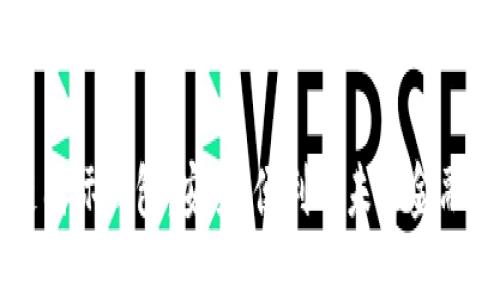区块链国际钱包:安全、便利与未来金融的桥梁
- By 小狐狸钱包官方网站
- 2025-11-03 13:44:36
引言
随着区块链技术的快速发展,越来越多的企业和个人开始关注和使用区块链国际钱包。这类钱包不仅提供了安全的存储和交易方式,还赋予了用户更大的控制权和便利性。本文将深入探讨区块链国际钱包的优势、使用场景、未来发展等方面,同时回答一些相关问题,以帮助用户更好地理解和利用这项新兴技术。
区块链国际钱包的基本概念

区块链国际钱包是一种存储和管理数字资产(如加密货币)的工具。与传统的钱包不同,区块链钱包基于去中心化的区块链网络,使用户能够安全地进行资产的存储与交易。用户拥有其私钥,可以直接访问和管理其资金,而不必依赖第三方。无论是在跨国交易、资产管理还是投资理财,区块链国际钱包都为用户提供了便捷的解决方案。
区块链国际钱包的核心优势
随着全球金融环境的变化,区块链国际钱包展现出其独特的优势,特别是在安全性、便捷性和透明性等方面。
1. 安全性
区块链技术本身具备高度安全性。每笔交易都通过加密算法进行保护,且需要多个节点的验证,这样可以有效抵御黑客攻击。此外,用户掌握私钥,自行管理资金,进一步降低了资金被盗的风险。
2. 便捷性
区块链国际钱包支持全球范围内的交易,用户只需具备网络连接即可随时随地进行资产交易。这种便利性尤其对于跨境电商、海外投资者以及外汇交易者来说,提供了有效的解决方案。
3. 透明性
区块链技术的另一个重要特征是其透明性。所有的交易记录都记录在区块链上,任何人都可以查看。这一特性有助于建立信任,尤其是在涉及多个交易方的情况下。
区块链国际钱包的使用场景

区块链国际钱包在多个场景下都展现出其重要性,以下是几个主要的使用场景:
1. 跨境支付
区块链国际钱包在跨境支付领域的应用越来越广泛。由于其低交易费用和快速到账时间,使得跨国企业和个人能够更加高效地进行资金转移。
2. 投资和资产管理
投资者可以通过区块链国际钱包持有多种数字资产,包括比特币、以太坊等。通过这些钱包,用户能够方便地管理自己的投资组合,实时查看市场动态。
3. 分布式应用程序(DApps)的支持
许多区块链国际钱包支持DApps,这使用户可以在不离开钱包的情况下,使用各种去中心化的服务,如借贷、交易和收益农场等。
4. 个人隐私保护
区块链国际钱包提供了高度的隐私保护。用户可以自主管理其交易记录,并选择是否公开。这对关注个人隐私的用户而言,具有特别的吸引力。
常见问题解答
如何选择合适的区块链国际钱包?
在选择区块链国际钱包时,用户需要考虑几个关键因素:
首先,安全性是最重要的因素。用户应选择知名度高、具备较强安全措施的钱包,如双重身份验证、冷存储等。其次,钱包的用户体验也相当重要,界面友好且易于操作的钱包会更受欢迎。此外,支持的加密货币种类、手续费、交易速度以及是否支持移动端应用等,都是选择时重要的考虑因素。最后,用户还应考虑其钱包的社区支持情况。一款拥有积极活跃社区的钱包,通常能够获得更好的技术支持和更新。
区块链国际钱包的隐私安全到底有多高?
区块链国际钱包的隐私安全性主要体现在几个方面:第一,用户掌控私钥,这意味着只有用户自己能够管理和访问其资产。相对于传统银行系统,用户不需依赖任何中央机构进行管理,从而减少了数据泄露的风险。第二,交易记录虽然在区块链上公开,但由于其无可追溯的特性,用户的真实身份难以被获知。只有在个别情况下(如与法定货币兑换时),用户的身份信息可能会被要求提供。总的来说,区块链国际钱包在确保用户隐私方面,较传统系统相对更具优势,但用户仍需谨慎保护个人信息。
如何确保区块链钱包的资产安全?
保护区块链国际钱包中的资产安全是每个用户的责任。首先,用户应妥善保管私钥,并尽量避免线上存储以防被黑客攻击。最好选择冷钱包(如硬件钱包)将大部分资产进行长时间保管。其次,定期更新钱包的安全设置,例如启用双重身份验证。此外,定期检查钱包的交易记录,确保无异常操作。如果用户在使用过程中,发现交易到账延迟或可疑操作,应立刻停止使用并寻找专业人士进行帮助。
区块链国际钱包的未来发展趋势如何?
随着区块链技术的不断成熟,国际钱包的未来发展趋势将更加多元化。首要趋势是与传统金融服务的融合。越来越多的金融机构正在尝试将区块链技术应用于其服务中,而区块链国际钱包则作为这种转型的关键工具。其次,随着用户数量的增加,区块链国际钱包需要提升其用户体验,提供更多自定义功能和更简单易用的界面。同时,去中心化金融(DeFi)迅速崛起,预计会推动区块链钱包的进一步发展,使其在借贷、融资等领域展现更多应用潜力。最后,伴随着监管政策的不断完善,区块链国际钱包也将更加符合合规要求,助力整个行业的健康发展。
结论
区块链国际钱包作为新兴的数字资产管理工具,正逐渐改变我们的金融生活。它不仅提供了安全、快捷的交易体验,还赋予用户更多的掌控权。随着市场需求的日益增长及技术的持续进步,区块链国际钱包在未来的金融生态中将占据更加重要的位置。对于每个用户而言,了解区块链国际钱包的功能和安全隐患,并合理使用,能够进一步提升资产管理的效率,使金融生活更加便捷、透明。



